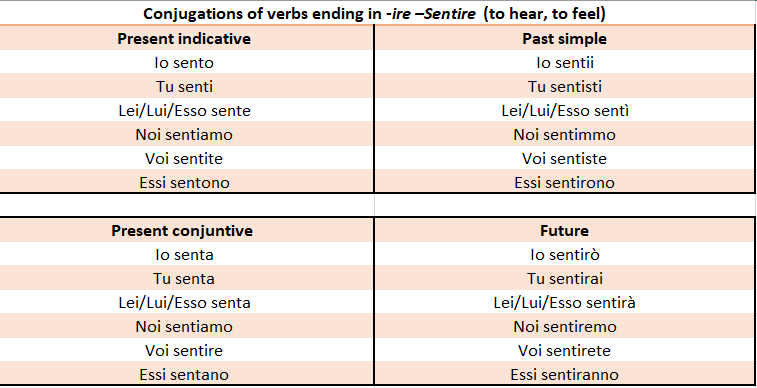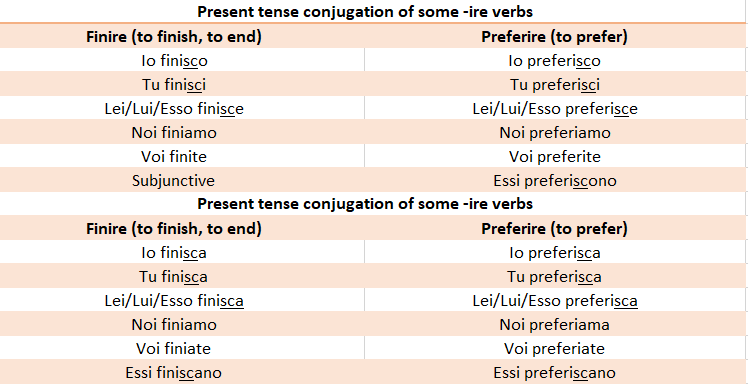The most common conjugations of Italian third-conjugation (-ire) verbs
As you may already know, linguistics recognise three different Italian verb conjugations, based on the ending of a verb in its infinitive form. They are categorised as follow:
- First-conjugation verbs (or -are verbs): amare (to love)
- Second-conjugation verbs (or -ere verbs): vedere (to see)
- Third-conjugation verbs (or -ire verbs): sentire (to hear)
In this lesson, we are going to focus on third-conjugation verbs, which consist of all the Italian verbs ending in -ire in their infinitive form. However, do not forget to check out our articles about first-conjugation and second-conjugation verbs!
Third-conjugation Verbs

Other -ire conjugation verbs
- Capire (to understand)
- Dormire (to sleep)
- Gestire (to manage)
- Perire (to perish)
- Soffrire (to suffer)
- Gioire (to rejoice)
Characteristics of third-conjugation Verbs
1. The suffix -isc
Many -ire verbs add the suffix -isc to the first, second and third person singular and to the third person plural, in their indicative and subjunctive present tenses.

Some verbs have both forms (with and without the suffix -isc), but usually only one of them is commonly used in the spoken language:

Other verbs have both forms, but they take on different meanings:
- Io riparto (I leave again)
- Io ripartisco (I divide)
2. Present participle ending in -ente or -iente
Generally, the present participle (participio presente) of the -ire verbs end in -ente.
- Morire (to die, infinite) -> morente (present participle)
- Pulire (to clean, infinite) -> pulente
However, some other verbs may have a participio presente ending in –iente. A few of them can also have both endings!
- Esordire (to commence) -> esordiente
- Dormire (to sleep) -> dormente/dormiente
In the case of some participles, the letter t that precedes the declination -iente becomes a z:
- Sentire (to hear, to feel) -> senziente
“One of the most important areas we can develop as professionals is competence in accessing and sharing knowledge”









